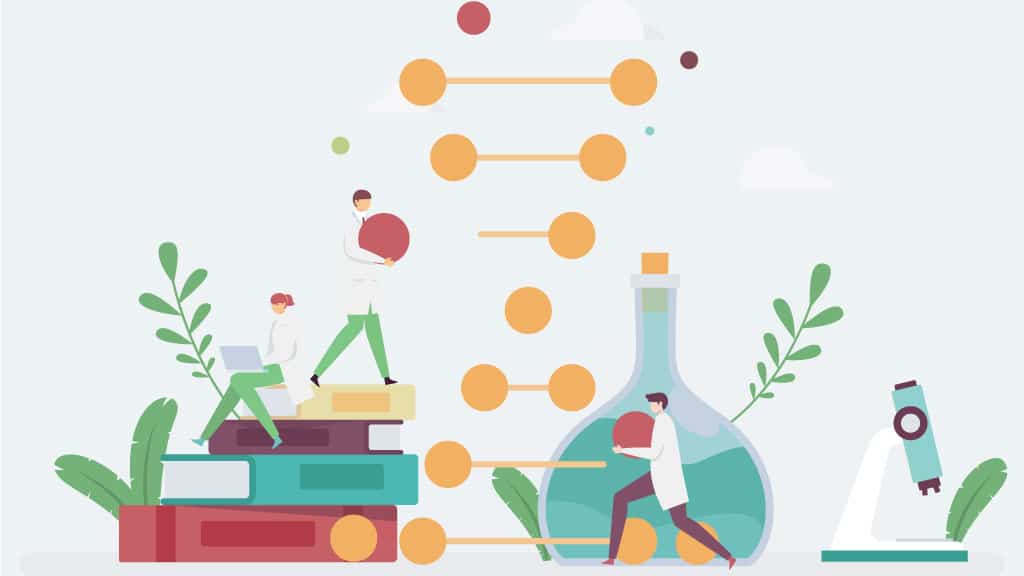Reading time: 4 minutes
Artificial intelligence is transforming every aspect of our lives from how we shop to how we can potentially find love. So it only makes sense that the healthcare industry turned to AI to attempt to improve the system and the overall well-being of people. 2020 started with COVID-19 taking the world by storm. While the world’s stock markets are taking a hit signifying global uncertainty that could affect tech companies at all stages, there seems to be a new opportunity for AI to come to the rescue of humankind.
As AI is getting more sophisticated in doing what humans do with more efficiency and at a lower cost, healthcare is seeing progress in more than one area such as:
Detection and diagnosis
AI is being used for early detection of many diseases, most importantly cancer. A study conducted last year used AI to create a customized screening to determine a woman’s likelihood of having breast cancer. The algorithm was 80% accurate with scientists still working to optimize it. Ovarian cancer is another disease that is usually discovered in later stages of development. Thanks to an AI developed in the UK with the use of 50 million health records, oncologists can detect ovarian cancer in their patients in 50% of the cases two years earlier than they could on their own. Since the disease kills over 150,000 women every year, this newly-developed AI could save thousands of lives. AI isn’t stopping there, though, as it could put a stop to a potential pandemic. While Coronavirus is causing global concern, a hospital in China is experimenting with using artificial intelligence to detect visual signs of the pneumonia coronavirus causes. This could help the hospital staff identify the disease more efficiently and focus on giving patients the care they need.
Treatment
Artificial intelligence can help doctors pinpoint the progression of a disease over time. This gives them the ability to choose the best treatment course and measure its effectiveness in treating the illness. Moreover, since different people respond to treatments differently, it could be difficult for healthcare providers to identify the personal factors that could come into play and affect a patient’s response to treatment. AI and machine learning come in to automate complex statistical data and uncover patterns and common characteristics that could cause a particular outcome of a treatment plan on a particular patient and so design the right treatment plan for each patient.
Staying healthy
While treating illnesses is one of health tech’s primary objectives, disease prevention is equally important and AI’s potential there is immense. In this age, smartwatches and fitness trackers are getting better and more popular than ever before, but they can expand beyond that. Wearables can measure physiological data and physical activity using sensors to monitor behavioural changes that could indicate a potential mental or physical health problem. For smartphone users, apps, powered by AI, currently encourage a healthier lifestyle with reminders to drink water, go for walks (like Pope Benedict XVI’s watch in The Two Popes), or even meditate. These technologies will only improve so your phone and smartwatch will be your personal health assistant.
In Canada, we are lucky to have a flourishing startup scene in every industry you can think of and AI specializing in healthcare is no exception. These four Canadian companies are developing powerful AI with the aim of revolutionizing health tech.

Benchsci was founded in 2016 by a team of Ph.D. biologists. The platform utilizes machine learning models to allow scientists to select the most suitable antibodies for experiments 24 times faster than current methods. In turn, Benchsci can reduce the cost of consumables and increases the impact of scientific research for more than 26,000 users at more than 2,000 academic institutions.
Benchsci has gone through multiple rounds of funding including a $250,000 pre-seed in 2016 and $7.3 million venture debt. In 2019, the platform announced that it had reached $27 million in funds raised.
Swift Medical

Swift Medical has developed a wound-care app. The technology measures and visualizes wounds and is able to provide wound care information by waving a smartphone above the injured area like a wand. Since its inception in 2015, Swift’s solution has been adopted by 2,000 healthcare facilities managing more than 100,000 beds in Canada and the US.
In 2018, Swift Medical announced an $11.6 million funding round to expand its reach and bring the solution to more hospitals and care facilities.
Analytics 4 Life

Analytics 4 Life uses artificial intelligence to develop a completely new form of medical imaging. With an initial focus on coronary artery disease, The Toronto-based company is advancing a new, radiation-free, and exercise-free cardiac imaging technology that aims to enhance existing healthcare methods.
Cyclica

Cyclica leverages AI and computational biophysics to reshape drug discovery. The biotechnology company provides the pharmaceutical industry with an end-to-end enabling drug discovery platform focused on polypharmacology with the goal of revolutionizing the system, accelerating the drug discovery process, and developing medicines with greater precision.




